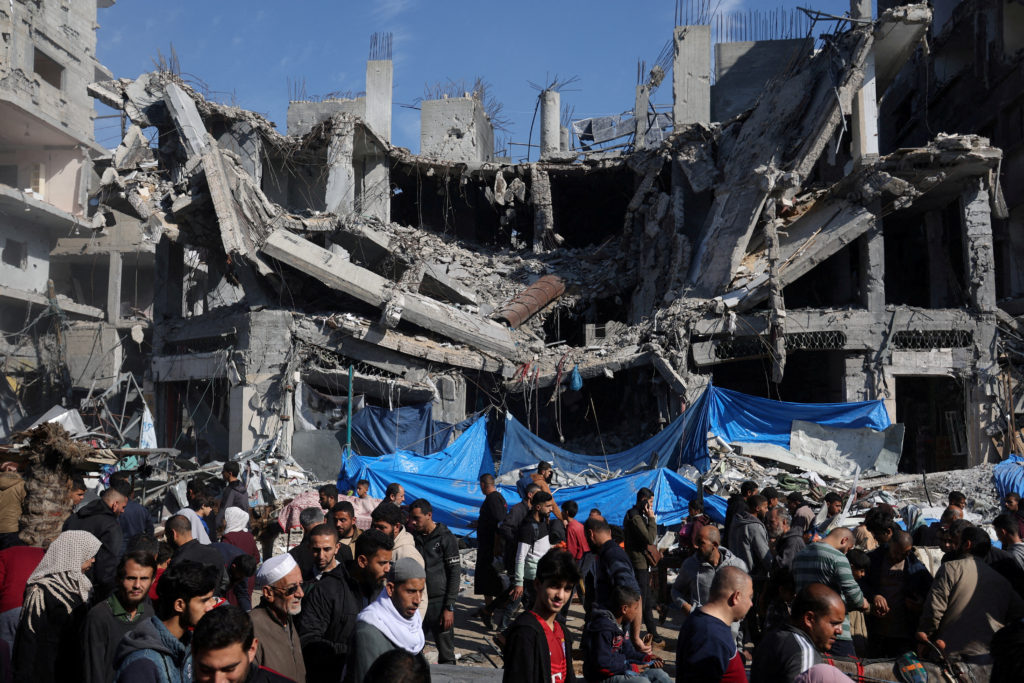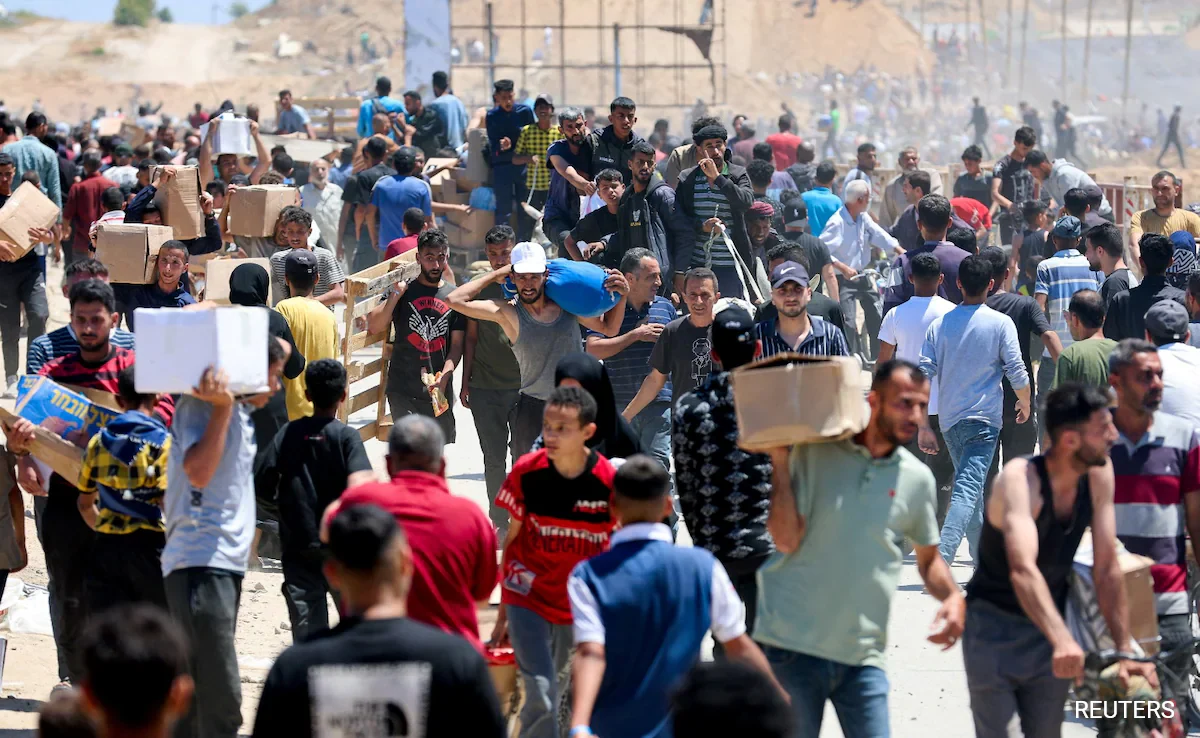The indirect Gaza truce talks reopened in Doha on July 6, as Qatari officials welcomed delegations from both Israel and Hamas. The discussions, mediated by Qatar and supported by Egypt and the United States, are being watched closely by international communities eager to end months of violence in the Gaza Strip.
This latest round of indirect Gaza truce talks reflects a growing urgency as civilian casualties continue to mount. The international community is pushing for a ceasefire, prisoner swaps, and humanitarian access, all while navigating an incredibly complex political terrain.
Qatar’s Key Role in Mediation
Doha has steadily built a reputation as a reliable mediator in Middle Eastern conflicts. With open communication channels to both Western allies and regional factions like Hamas, Qatar has served as a crucial go-between in past ceasefire efforts. The indirect Gaza truce talks have again placed Doha at the center of international diplomacy.
Qatar’s neutral foreign policy stance and history of providing humanitarian aid to Gaza have earned it credibility on both sides. The country is home to Hamas’ political office, giving it direct access to key decision-makers who are often unreachable for other global powers.

Timeline of Recent Truce Efforts
Since the outbreak of the latest conflict, previous ceasefire efforts have failed to hold due to disagreement over key conditions. These include the release of Israeli hostages held in Gaza, the withdrawal of Israeli troops, and the establishment of long-term political arrangements.
The indirect Gaza truce talks earlier in Cairo and Paris saw limited progress. However, negotiators are hopeful that the July 6 session in Doha, bolstered by fresh diplomatic outreach from the United States, could provide a breakthrough.
Sources close to the talks indicate that the U.S. is pushing a phased agreement that includes a temporary ceasefire, a partial exchange of hostages and prisoners, and expanded humanitarian corridors into Gaza.
What’s at Stake in the Doha Talks?
The stakes are incredibly high. More than 38,000 Palestinians have been killed or injured since October, and Israeli losses continue to grow. The humanitarian situation in Gaza is worsening every day, with over 70% of the population displaced, lacking food, water, and medical supplies.
The indirect Gaza truce talks offer a rare opportunity for all parties to agree on a common path forward. For Israel, an agreement could help ease domestic political pressure and allow room for a strategic reset. For Hamas, it’s a chance to gain international legitimacy and much-needed aid for Gaza’s rebuilding.
U.S. Support and Strategic Interest
The United States has renewed its diplomatic push, sending special envoy Brett McGurk to the region. According to officials, Washington views the indirect Gaza truce talks as a gateway to stabilizing the region and rebuilding relationships that have been strained by prolonged violence.
The Biden administration is also concerned about regional security. A prolonged conflict in Gaza could trigger wider unrest across Lebanon, Syria, and the West Bank. With the U.S. election season approaching, Washington is looking for diplomatic wins, and a truce in Gaza would be a powerful statement of American influence.
Egyptian Involvement
While Doha hosts the main stage of the indirect Gaza truce talks, Cairo continues to play a supportive role. Egypt’s intelligence services are facilitating communication with Hamas and using their leverage to push both sides toward compromise. Egypt also controls the Rafah border crossing, a vital point for humanitarian aid.
Together with Qatar, Egypt provides a powerful coalition that merges diplomatic credibility with logistical capability. The two countries have managed multiple ceasefire negotiations in the past, and their combined efforts give the current talks a real chance of success.

Key Points Under Discussion
The indirect Gaza truce talks are focused on several high-stakes items:
- Hostage and Prisoner Exchange: A major sticking point. Hamas demands the release of Palestinian prisoners, while Israel prioritizes the return of its hostages.
- Ceasefire Duration: Talks are ongoing about whether the truce will be temporary or extended over phases.
- Withdrawal of Israeli Forces: Hamas seeks a full withdrawal, while Israel wants guarantees about future security.
- Humanitarian Aid Access: Both sides must agree on safe zones and access routes for aid deliveries.
- Political Guarantees: Hamas is pushing for recognition of its governance role in Gaza, a condition that Israel firmly rejects.
Regional and Global Reactions
The indirect Gaza truce talks have drawn support from the United Nations, European Union, and several Gulf nations. Saudi Arabia and the UAE have expressed cautious optimism, while Turkey has praised Qatar’s leadership.
The international community is calling for a comprehensive agreement that not only stops the fighting but also lays the groundwork for peace. Diplomats warn, however, that without mutual trust and verification mechanisms, even the best-designed truce could collapse.
Why Doha Matters
Qatar’s role in hosting the indirect Gaza truce talks is more than symbolic. It reinforces Doha’s image as a key global player in peacekeeping and crisis resolution. Over the past decade, Qatar has hosted talks for conflicts in Afghanistan, Sudan, and Lebanon, earning respect for its diplomatic finesse.
Qatar’s Foreign Minister Sheikh Mohammed bin Abdulrahman Al-Thani stated, “Qatar remains committed to fostering peace in the region. We believe dialogue is the only way forward.”
Conclusion: A Fragile Hope for Peace
The indirect Gaza truce talks in Doha offer a fragile yet significant hope for peace in a region long plagued by conflict. With multiple actors at the table and international support growing, the coming days will be critical in shaping the outcome.
The world watches closely, aware that failure would mean continued suffering. But if the parties can agree even on the first steps the talks could mark a turning point in the Gaza crisis.
Do follow Gulf Magazine on Instagram
Also Read – Qatar Airways Resumes Flights to 4 Nations With Powerful Comeback



